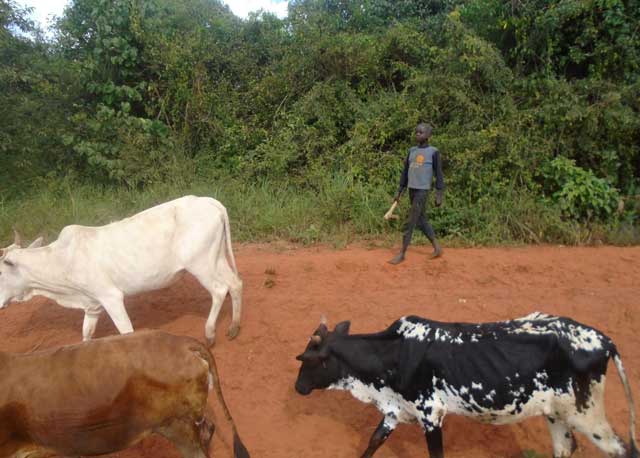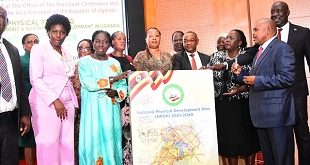
Lamwo, Uganda | THE INDEPENDENT | The persistent incursion of armed South Sudanese cattle thugs in parts of Lamwo district is impacting negatively on livestock and crop farming, the local leaders have revealed.
The most affected are Agoro and Madi-Opei sub Counties, which border South Sudan. The two have registered increased cattle raids resulting in death or grievous harm to residents since January this year.
The Madi-Opei Sub-County LC III Chairperson, Charles Obong Okwera, says a recent attack on locals in the area has almost forced them to halt crop cultivation.
On Friday last week, David Ochol and Charles Amonewere sustained serious injuries after being shot in an attack by eight South Sudanese gunmen.
Four cattle were also stolen during the raid on Lotuku village in Madi-Opei Sub County, a fertile strip of land bordering South Sudan.
Okwera notes that many farmers had taken advantage of the lockdown to cultivate their land but says the repeated attacks by gunmen from the Langi tribesmen in neighboring Torit state is frustrating their efforts.
“We are trying all ways to ensure that locals improve on their livelihood, government gave out animals through projects such as NUSAF and cattle restocking and we though during this lock down people should embark on farming for self-sustenance. But the challenge is now that farming has subsided because of fear,” he said.
He says the challenge has been compounded by limited security personnel on the ground and the vast 25kilometers porous border point between Lawiye Oduny and Okol parishes.
“Yesterday we spoke to Brig Kabango to increase security deployment, there are soldiers here but the challenge is vast porous border points, even if you have over 2,000 soldiers for 25 Kms, it impossible, these soldiers don’t only work to secure the borders, they are implementing covid-19 directives, on patrol and securing highways. We are afraid farming has gone low because of fears, we had high hopes that this year’s yield will surpass any other years,” he said.
In Agoro Sub County, one of the areas that registered an upsurge in cattle theft, residents have lost morale in farming and rearing animals as it attracts attacks, according to the Sub county LC III Chairperson, Denis Onyon.
He says most of the animals that are being looted were distributed by government through office of the Prime Minister under the cattle restocking program to improve livelihood of locals recovering from the two decade LRA insurgency.
“Our people believe it’s a useless initiative to keep animals because one they multiply, they end up being stolen by armed south Sudanese thugs. The fertile strip of land they used to get high yields from is currently inaccessible due to constant attacks,” Onyon told Uganda Radio Network in an interview Wednesday.
According to him, 56 cows have been stolen in Oboko, Irumu and Logot Binonga villages in Rudi Parish and Lupilingi parish since January 9th, 2020. 32 of these have since been recovered.
Brig Michael Kabango, the 5th Infantry Division Commander, acknowledges the challenges of South Sudanese incursions in the region.
He however, notes that the theft of animals in particular is being influenced by bad practices. Brig Kabango says most farmers don’t want to keep their animals in kraals yet it’s an investment worth protecting.
Last week, Brig Kabango revealed that 700 Local Defense Unit personnel will be deployed in Lamwo district to man the porous border points following increased raids by South Sudanese cattle thugs.
A total of 130 cattle have been looted from Madio Oepi Sub County alone by armed South Sudanese cattle thugs since January this year. 91 have so far been recovered while 39 are still missing, according to records from the sub county leadership.
*******
URN
 The Independent Uganda: You get the Truth we Pay the Price
The Independent Uganda: You get the Truth we Pay the Price


